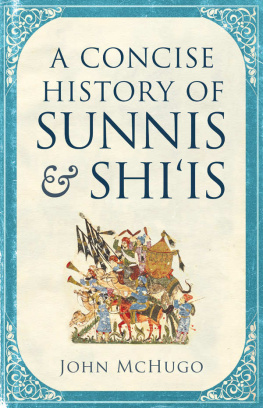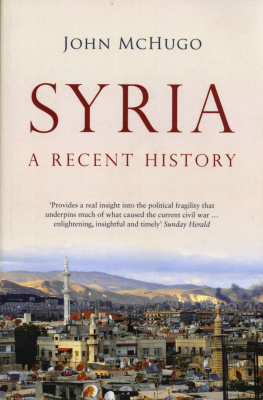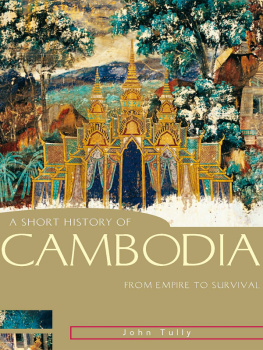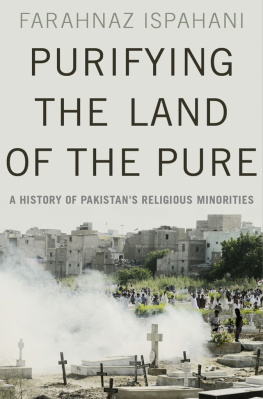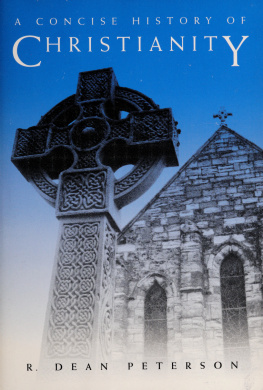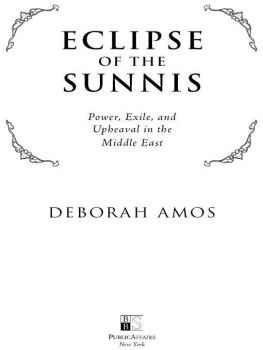John McHugo - A Concise History of Sunnis and Shi’is
Here you can read online John McHugo - A Concise History of Sunnis and Shi’is full text of the book (entire story) in english for free. Download pdf and epub, get meaning, cover and reviews about this ebook. year: 2017, publisher: Saqi Books, genre: Religion. Description of the work, (preface) as well as reviews are available. Best literature library LitArk.com created for fans of good reading and offers a wide selection of genres:
Romance novel
Science fiction
Adventure
Detective
Science
History
Home and family
Prose
Art
Politics
Computer
Non-fiction
Religion
Business
Children
Humor
Choose a favorite category and find really read worthwhile books. Enjoy immersion in the world of imagination, feel the emotions of the characters or learn something new for yourself, make an fascinating discovery.
- Book:A Concise History of Sunnis and Shi’is
- Author:
- Publisher:Saqi Books
- Genre:
- Year:2017
- Rating:3 / 5
- Favourites:Add to favourites
- Your mark:
- 60
- 1
- 2
- 3
- 4
- 5
A Concise History of Sunnis and Shi’is: summary, description and annotation
We offer to read an annotation, description, summary or preface (depends on what the author of the book "A Concise History of Sunnis and Shi’is" wrote himself). If you haven't found the necessary information about the book — write in the comments, we will try to find it.
A Concise History of Sunnis and Shi’is — read online for free the complete book (whole text) full work
Below is the text of the book, divided by pages. System saving the place of the last page read, allows you to conveniently read the book "A Concise History of Sunnis and Shi’is" online for free, without having to search again every time where you left off. Put a bookmark, and you can go to the page where you finished reading at any time.
Font size:
Interval:
Bookmark:
A CONCISE HISTORY OF SUNNIS AND SHIIS
ALSO BY JOHN MCHUGO
A Concise History of the Arabs
Syria: A Recent History

Published by Saqi Books 2017
Copyright John McHugo 2017
ISBN 978-0-86356-163-4
eISBN 978-0-86356-158-0
John McHugo has asserted his right under the Copyright, Designs and Patents Act, 1988, to be identified as the author of this work.
This book is sold subject to the condition that it shall not, by way of trade or otherwise, be lent, resold, hired out, or otherwise circulated without the publishers prior consent in any form of binding or cover other than that in which it is published and without a similar condition including this condition being imposed on the subsequent purchaser.
First published in Great Britain in 2017 by
Saqi Books
26 Westbourne Grove
London W2 5RH
www.saqibooks.com
A full CIP record for this book is available from the British Library.
Printed and bound by CPI Group (UK) Ltd, Croydon CR0 4YY
To the memory of my parents, with love and gratitude
Christopher Lawrence McHugo, 19091987
Jan McHugo, 19132001
May they rest in peace
Abbasid: the dynasty of Caliphs who were descended from the Prophets uncle Abbas and who ruled during the period 7501258.
Akhbari: a school of Twelver Shii theology which rejects the rationalist methods of the rival Usuli school.
Alawi: a member of a secretive Shii sect; the Alawis predominate in the mountains above Lattakia in Syria and in parts of the Orontes valley further east. There are also Alawis in Turkey.
Alevi: a Shii grouping in Turkey who are the present-day spiritual descendants of the Kizilbash.
Ansar: the Muslims during the time of the Prophet who were natives of Medina.
Ashura: the Shii commemorations of the martyrdom of Hussein, the Prophets grandson, on the 10th day of the month of Muharram.
Ayatollah: literally sign of God. A pre-eminent religious scholar in Twelver Shiism.
Al-Azhar: a university mosque originally founded in Cairo by the Fatimids during the 970s. Today it is the most influential teaching institution of Sunni Islam.
Batini: literally, esotericists. A derogatory name for the Fatimid Ismailis.
Caliph: the word can mean either deputy or successor: a title adopted by the successive leaders of the Muslim community after the death of the Prophet Muhammad; hence caliphate for the caliphs office, or the area under the caliphs stewardship.
Dai: an Ismaili missionary
Dawa: the call or the preaching
Druze: a member of a secretive sect that is an offshoot of Shii Islam. They are numerous in parts of Lebanon and the Hawran plateau, southeast of Damascus. There is also a Druze community in Israel.
Faqih: a Muslim religious scholar who is versed in the detail of the Sharia.
Fitna: civil disturbance or discord.
Gnostic Shiis: Shii movements preserving heterodox beliefs that predate Islam.
Hadith: the sayings or traditions ascribed to the Prophet Muhammad.
Hijra: emigration, specifically the Prophets emigration from Mecca to Medina.
Ijtihad: independent judgement, especially in a legal or theological context.
Imam: a religious leader. The word may mean no more than a prayer leader or preacher, but for Shiis the word is used for the divinely inspired and infallible teacher whom all Muslims are bound to follow. See the discussion of the term in .
Ismailis: the second largest Shii sect. They believe that the line of the Imams descended through Ismail, who died before his father, the sixth Imam, Jafar al-Sadiq. His line has continued until today and is now represented by his descendant, the Aga Khan.
Jahiliyah: literally, the age of ignorance, the age before the preaching of Islam.
Jazeera: island or peninsula in Arabic. Also the name of the large area of steppe between modern Iraq and Syria.
Jihad: literally, expenditure of effort or endeavour. Jihad is the struggle a Muslim should wage against his ego and for his religion. This includes religious warfare in the name of the Muslim community, which is the most common use of the term today.
Kaba: the shrine in Mecca.
Kharijis: a Muslim sect that rejected both Ali and Muawiya as the leader of the Muslim community and is neither Sunni nor Shii.
Kizilbash: literally redheads. The Kizilbash were a confederation of Turkic tribes who supported Shah Ismail and subsequent rulers of Iran.
Madhhab: a doctrinal law school in Sunni Islam that is considered valid by all Sunnis.
Madrasa: a religious school or seminary.
Mamluk: a slave soldier usually brought as a boy from a distant country and brought up to be a member of a military elite.
Maronite: a member of a Christian sect predominant in parts of Lebanon but also with followers scattered throughout Greater Syria. This sect has retained its own traditions and autonomous structure while being in communion with the Roman Catholic Church since the time of the Crusades.
Mufti: a religious scholar of sufficient eminence to give opinions on questions of Islamic law that it is reasonable for other Muslims to follow.
Muhajirun: literally the emigrants, those Muslims who followed Muhammad to Medina.
Muharram: the month in the Muslim calendar in which Hussein was killed.
Mujtahid: an expert jurist whose degree of learning and piety is such that he is able to use his independent reasoning to interpret and develop questions on the Sharia.
Munafiqun: the hypocrites, those Muslims who converted to Islam in Medina for reasons of expediency and were judged to be insincere.
Mutazili: a movement in the Abbasid era that applied the logical techniques of Greek rationalism to developing Muslim theology.
Notables: the elite, aristocratic families of the Ottoman Empire and its successor states.
Rashidun: the first four caliphs, Abu Bakr, Umar, Uthman and Ali, who are accepted by Sunni Muslims.
Safavids: the dynasty that ruled Iran from 1501 to 1722 and converted most of the country to Twelver Shiism.
Salaf: ancestors, predecessors, specifically al-salaf al-salih, the righteous ancestors or forefathers, namely the first three generations of Muslims.
Salafi: literally a follower of the forefathers. The term is generally used for a Sunni Muslim who follows a rigid and literalist form of Islam and tries to base his life as closely as possible on that of the Prophet and his Companions in the seventh century. Hence, Salafism.
Sharia: the religious, or canonical, law of Islam.
Sheikh: literally, old man. The term denotes respect and is used of a tribal or religious elder or leader. A man who learns the entire Quran by heart is automatically a sheikh whatever his age.
Shii: a follower of Shii Islam, the second largest Muslim sect.
Shirk: polytheism, idolatry.
Shura: the Arabic word for consultation.
Source of emulation: a Twelver religious scholar whose learning is so deep and his piety so great that ordinary members of the faithful adopt his teachings as the model they will follow in their spiritual lives.
Next pageFont size:
Interval:
Bookmark:
Similar books «A Concise History of Sunnis and Shi’is»
Look at similar books to A Concise History of Sunnis and Shi’is. We have selected literature similar in name and meaning in the hope of providing readers with more options to find new, interesting, not yet read works.
Discussion, reviews of the book A Concise History of Sunnis and Shi’is and just readers' own opinions. Leave your comments, write what you think about the work, its meaning or the main characters. Specify what exactly you liked and what you didn't like, and why you think so.

